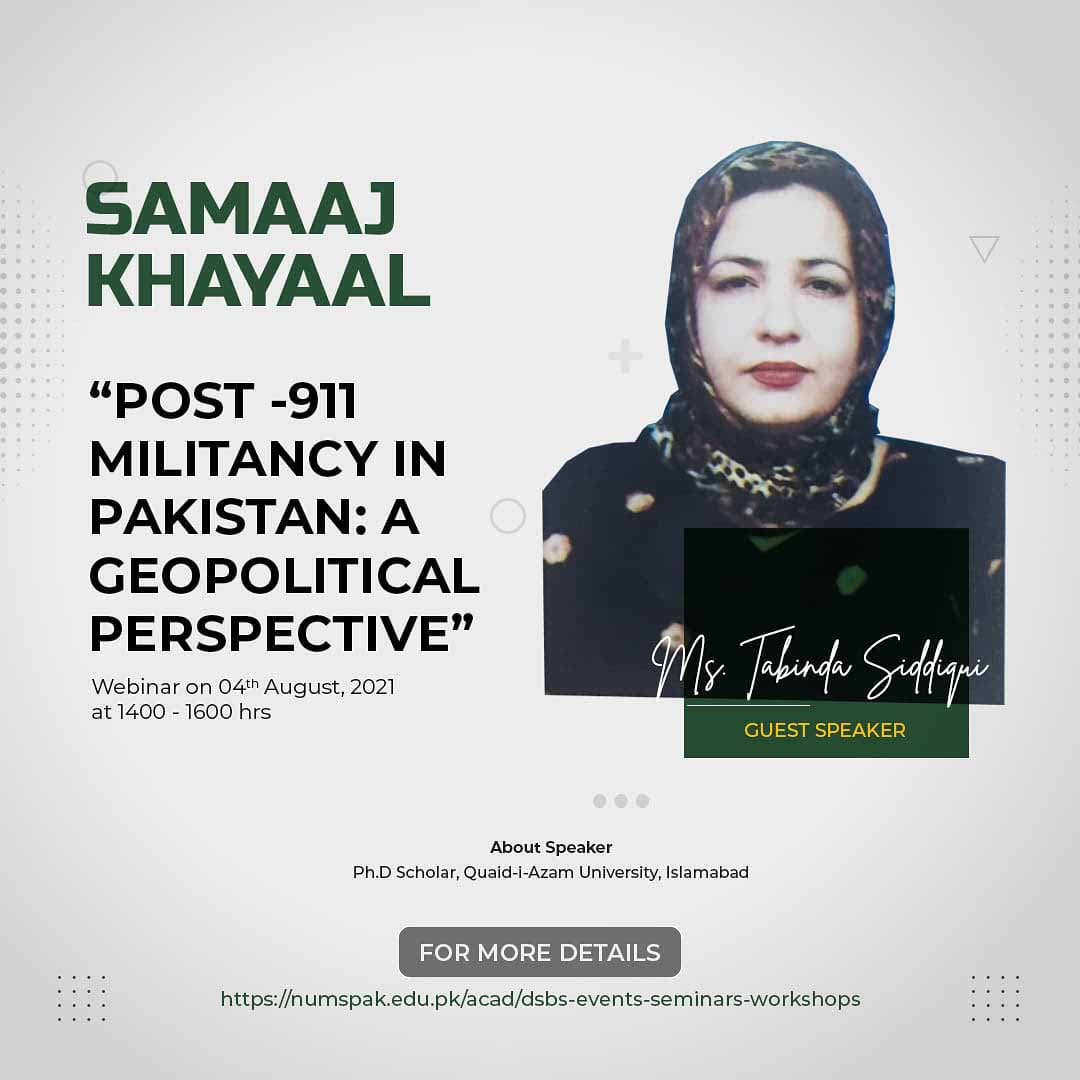
The NUMS Faculty of Social Sciences and Humanities held its 12th session of “Samaaj Khayaal”- a fortnightly series, which aims to transcend disciplinary boundaries, find connections and bring to light issues of social relevance. The session titled “Post-9/11 Militancy in Pakistan: A Geopolitical Perspective” was held on August 4th, 2021 at NUMS PWD Campus. Ms. Tabinda Siddiqui, who is currently pursuing her doctorate studies at National Institute of Pakistan Studies, Quaid-i-Azam University, Islamabad was invited as the guest speaker to share her PhD research findings. With a degree in defense and strategic studies, her research interest spans the challenges related to extremism post 911 especially the role of media as a platform for discourse development; for concepts like terrorism.
The session started with a 30-minute presentation by the guest speaker. Ms. Tabina introduced the multidisciplinary audience to scholarly work by Edward Said, Karen Armstrong and Khuram Iqbal which also challenges the dominant discourse around ‘religious’ militancy. Showing examples from media, she highlighted how post 911 militancy and response is global in nature and how various labels like ‘fundamentalism’, ‘radicalization’ and ‘extremism’ have been attached to present the problem. Citing the lack of a critical geopolitical analysis, lack of a historic account and a Pakistani perspective, the guest speaker highlighted the need to ask in her research question; “Were the dominant factors of post-9/11 militancy in Pakistan religious or geopolitical?” Her qualitative research employed interviews of religious scholars and critical analysis of declassified documents, documentaries and research reports for data collection. Using discourse analysis, she went on to discuss that the dominant discourse of religious militancy and terrorism is specifically produced by intellectuals of statecraft, political commentators, think tanks, media, and by the terrorists themselves. Critically looking at the role of media, she discussed examples of how media through its capacity to popularize the debates and through its non-attention of counter or multiple arguments, constructs a discourse. She concluded by putting forth the premise that post 911 militancy is the result of regional and international geopolitics and is not an indigenous issue inspired by religion.
Following the presentation, the onsite and online audience asked the questions which were addressed by the guest speaker. Faculty members debated about national level policies and regional cooperation influencing the topic at hand. The students inquired about the research methodology and reflexivity issues. It was also discussed that the politicization of extremism and role of media in creating a popular discourse needs to be deconstructed and alternative indigenous narratives have to be brought to light. Our religious scholars, politicians and other stakeholders need to address the popular image of the country in media. The guest speaker also shared future possible topics of research that explore the issue from a feminist lens or examines the religious doctrine in an in-depth study. At the end of the interactive session, the guest speaker was awarded the NUMS souvenir, followed by a group picture and an informal interaction over tea.
.jpg)
.jpg)
.jpg)
.jpg)
.jpg)